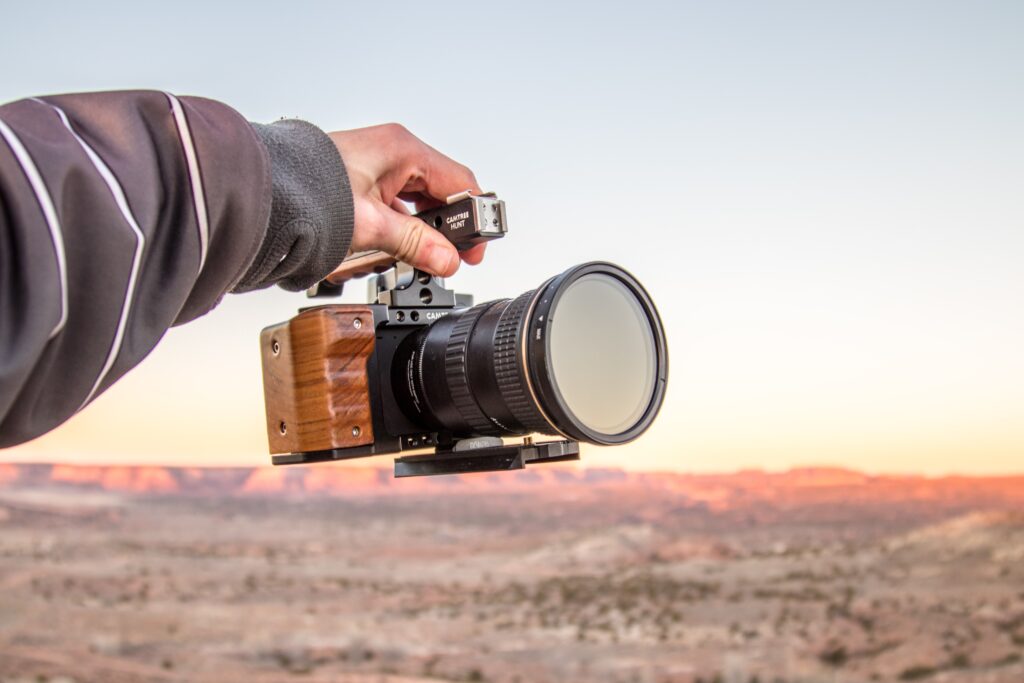During the days of film photography, it was very important for you to have a UV protection lens filter. The film was very sensitive to ultraviolet light which may end up ruining the photos.
When taking photos with a film camera in bright outdoor conditions, the resulting images had a haze and lacked contrast.
However, in modern digital cameras, the sensor eliminates the UV light minimizing any effect that may result from UV light.
This has led to a split in the photography community on whether you still need a UV protection lens filter despite the camera being insensitive to UV light.
In this article, we will be tackling this debate and finally come to a conclusion if you still need a UV protection lens filter.
What is a UV protection lens filter?
A UV protection lens filter is a type of camera lens filter that blocks ultraviolet light from entering the lens. A UV lens filter is also referred to as the clear filter or haze filter as it has no effect on the exposure settings or the color of an image.
In most cases, photographers use UV protection lens filters for the purpose of protecting the front parts of a camera lens.
This does not mean that a photographer can just drop a lens and get away with it. It means that by attaching a UV protection lens filter to the lens, you may get away with minor incidents such as scratches, dust, or mud.
In other words, it is cheaper to lose a broken lens filter than to replace a much more expensive camera lens if a sandstorm strikes.
Why you should use a UV protection lens filter
Unlike other camera lens filters which have a significant impact on your photos, UV filters don’t present any significant alteration in the quality of an image.
One divide supporting the use of a UV protection lens filter insists that the filter adds more contrast to photos. I beg to second this opinion as I tested landscape photography with and without a UV protection lens filter and verified the statement.
One thing that anybody cannot argue about is the fact that it is easier to clean a UV filter than the lens itself. A situation may occur when mud splashes toward your camera. Without a UV protection lens filter, that lens may never resume its original state. But if you have a clear lens on, you will wipe it off. If using the filter afterward affects your images, you may opt not to use it at all. The same will apply to fingerprint smudges and scratches.
These are the situations in which you cannot afford not to have a UV protection lens filter on;
- If you are using very expensive lenses
- When shooting in bright outdoor conditions (Landscape photography)
- When shooting in areas with a lot of sand (beaches or deserts)
- If your lens gets fingerprint smudges often
- When shooting in the rain and muddy conditions
Note: Take additional measures to protect your gear when shooting in the rain.
Why you should not use a UV protection lens filter
A significant percentage think that it is not necessary to have a UV protection lens filter. Some of the reasons they state are that the lens affects the sharpness of images and color calibration. Well, that is true especially if you use a lens filter made of poor-quality glass.
Premium quality UV filters of the same or higher standard glass compared to your lens will have no effect on your photos.
Here are some factual reasons why you may not need a UV protection lens filter;
- When you are using other filters which will take the role of protecting the lens
- When shooting directly toward the source of the light to avoid flares and ghosting
- When shooting indoors where there is no risk of unfavorable weather conditions or UV light
Watch this quick video by Camber Film School to understand the importance of UV lens filters better;
FAQs
How do I choose a UV protective lens filter?
When shopping for a UV filter, you should settle on the ones made of optical glass. The higher the quality of the glass the less it will affect the photos. Take note that this UV protection lens filter will be more expensive than low-quality lens filters.
At all costs should you avoid a UV protection lens filter whose glass quality is not indicated. You should also check on the multi-layer coatings.
Do professional photographers use UV filters?
It is unlikely that you will find a professional photographer without a UV filter, a neutral density filter, and a polarizing filter. This is because any of the camera filters can be of use when the situation demands.
Are UV filters expensive?
A UV protection lens filter should definitely not exceed the price of your lens. Most camera lens filters range anywhere between $30-$100. There are more expensive UV protection lens filters but I recommend a filter worth 10% of the price of your camera lens.
Conclusion on UV protection lens filters
Although digital cameras are not sensitive to ultraviolet light, having a UV protection lens filter will do you more good than bad.
I would suggest that you use a filter with high-quality glass and multi-layer coatings if you want to reap the most from a UV lens filter.

